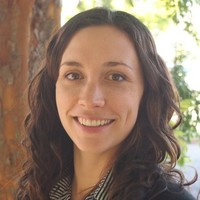Approaches to cross-repository dataset replication and linking
Speakers

Natasha Haycock-Chavez
Arctic Data Center
Natasha Haycock-Chavez is the Community Engagement and Outreach Coordinator at the Arctic Data Center. She hold an M.A in Geography from Memorial University in Newfoundland where she specialized in Indigenous-led conservation. Her master’s research took place in Sanikiluaq, Nunavut, Canada, where she worked with the Inuit community of Sanikiluaq, Nunavut, as they planned and developed a protected area, known as Qikiqtait Protected Area. Qikiqtait Protected Area is based on a collaborative community-planning framework led by Sanikiluaq.
Part of Natasha’s research emphasized how Indigenous research methodologies and self-determination can be integrated into conservation planning, as well Arctic research in general. In her role at the Arctic Data Center, Natasha leverages this experience in community engagement for the benefit of the Arctic research community

Joan Damerow
Lawrence Berkeley National Laboratory
As an aquatic ecologist and biodiversity informatics specialist, Joan is interested in best practices for using environmental data and biodiversity records to determine changes over time. Her past research focused on resurvey studies of biological indicator groups for freshwater ecosystem health, including dragonflies and benthic macroinvertebrates. This work involved digitizing natural history specimens and other historical data, and extensive data quality control. Joan worked in a team to develop an online platform for specimen label transcription, and managed citizen science outreach and education efforts. She has expertise in data curation and analysis of opportunistic datasets, which requires error detection and accounting for collection biases. She has also worked in an interdisciplinary team to study how researchers are using primary biodiversity databases in published research.
Joan is currently interested in ensuring that important environmental datasets are standardized, curated, and made publicly accessible. As a postdoc at LBNL, she will be working with the community of Earth and Environmental Scientists to develop and use relevant data standards in their work.
